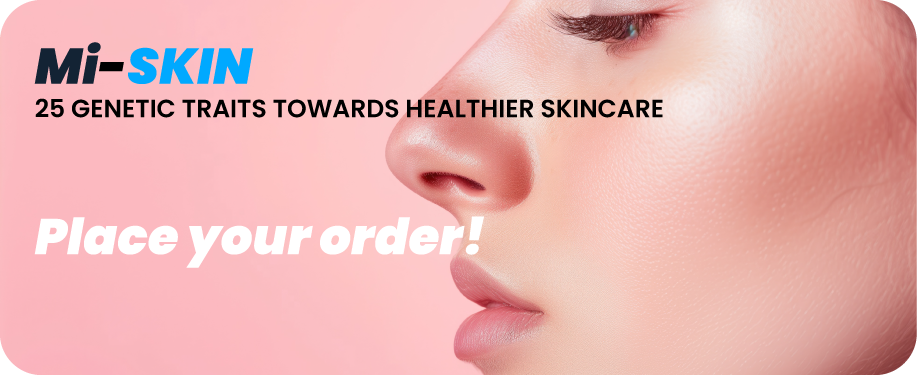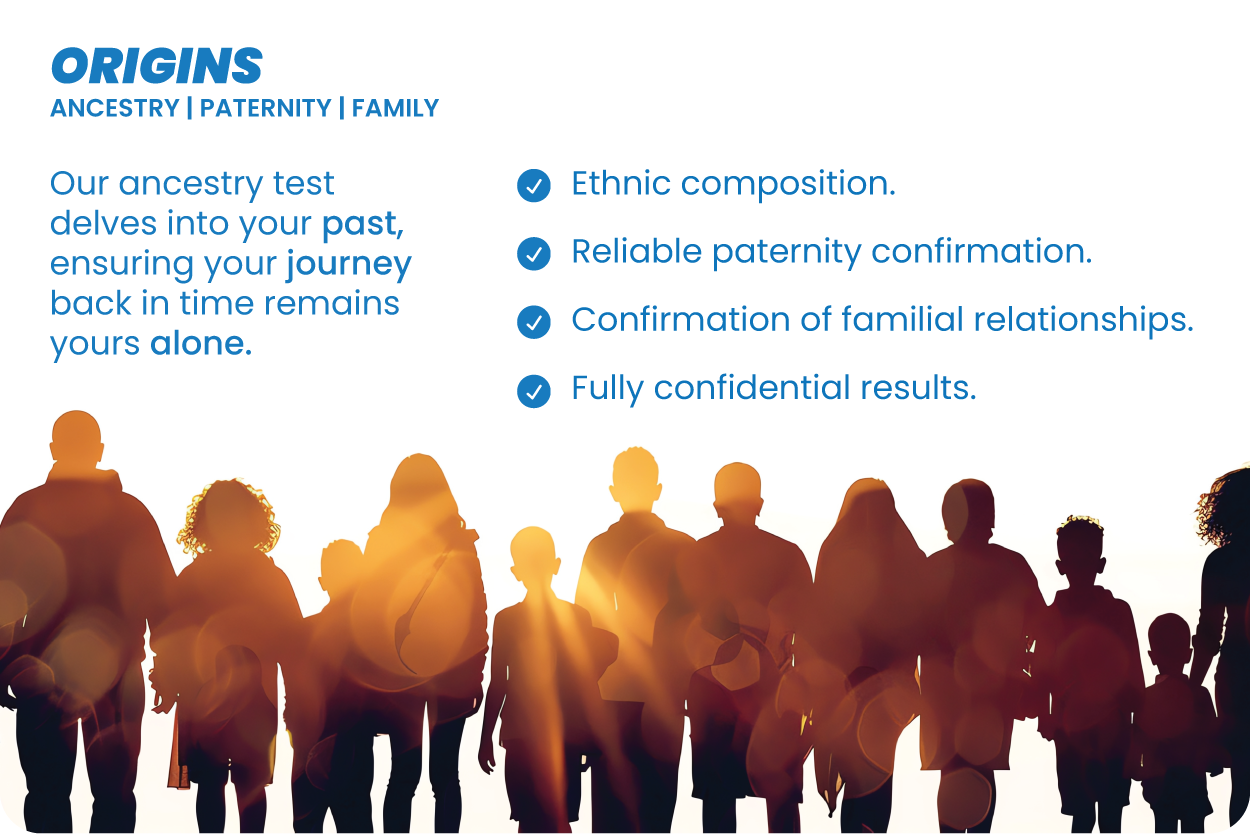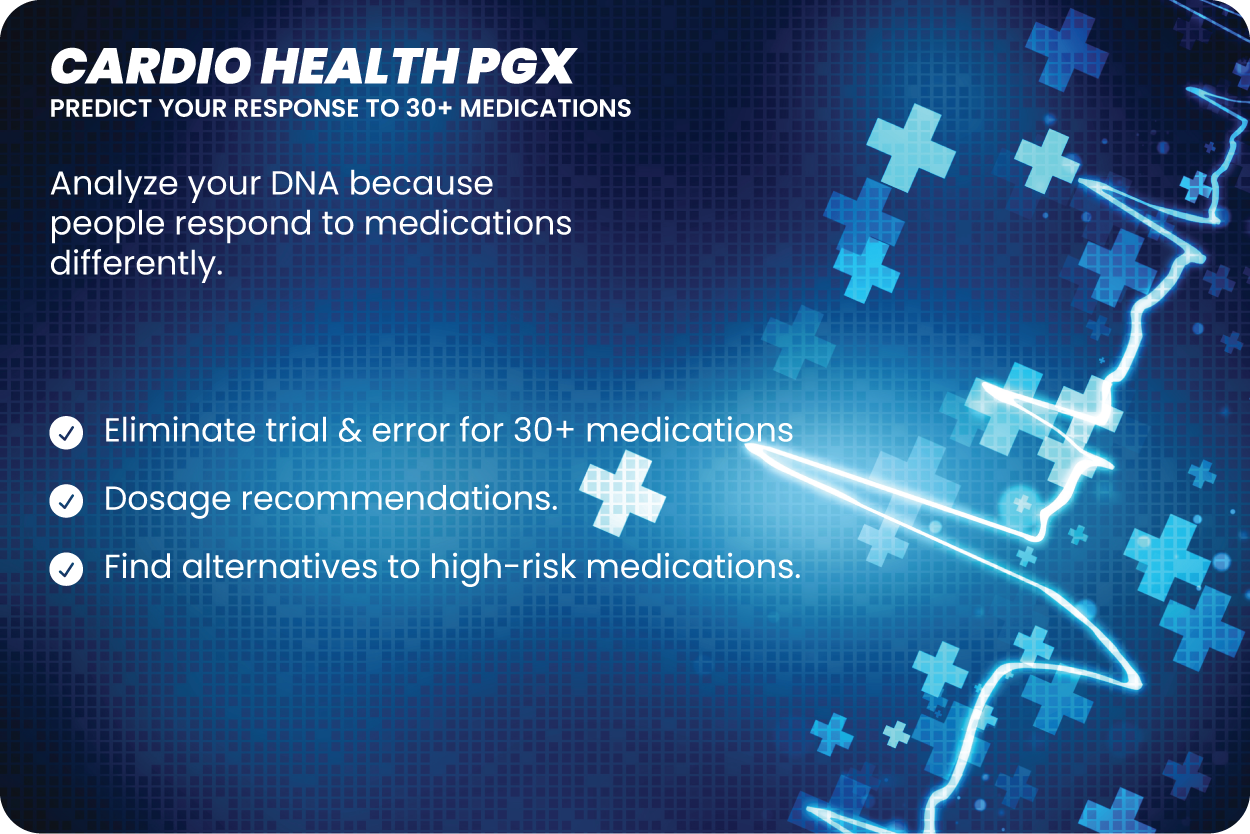Nutritional Needs
Vitamin A
Vitamin B2
Vitamin B6
Vitamin B12
Vitamin C
Vitamin E
CoQ10
Folate
Texture and Elasticity
Skin Inflammation
Moisture and Defense
Nutritional Needs
Moisture and Defense
Antioxidant Response
Detoxification
Pollution Defense
Dry Skin
Glycation and Accelerated Aging
Texture and Elasticity
Cellulite
Collagen Degradation
Stretch Marks
Varicose Veins
Skin Inflammation
Acne
Sleep Quality
Eczema
Psoriasis
Photoaging and Pigmentation
Freckles
UV Damage and Sunspots
Melanin Production and Tanning
UV Repair
Photoaging and Pigmentation
Order your DNA test through our website. Your kit will arrive in 2-4 business days.
1.Place your Order
2. Complete Your Sample
Provide a simple cheek swab in the comfort of your home. Send it back to us in the pre-paid mailer.
Your DNA will be analyzed in our state-of-the-art, CAP/CLIA accredited laboratory.
3. Analyze Your Sample
In about 2 weeks your results will be available exclusively on the Milo Care Plus app.
4. Receive Your DNA Report
































